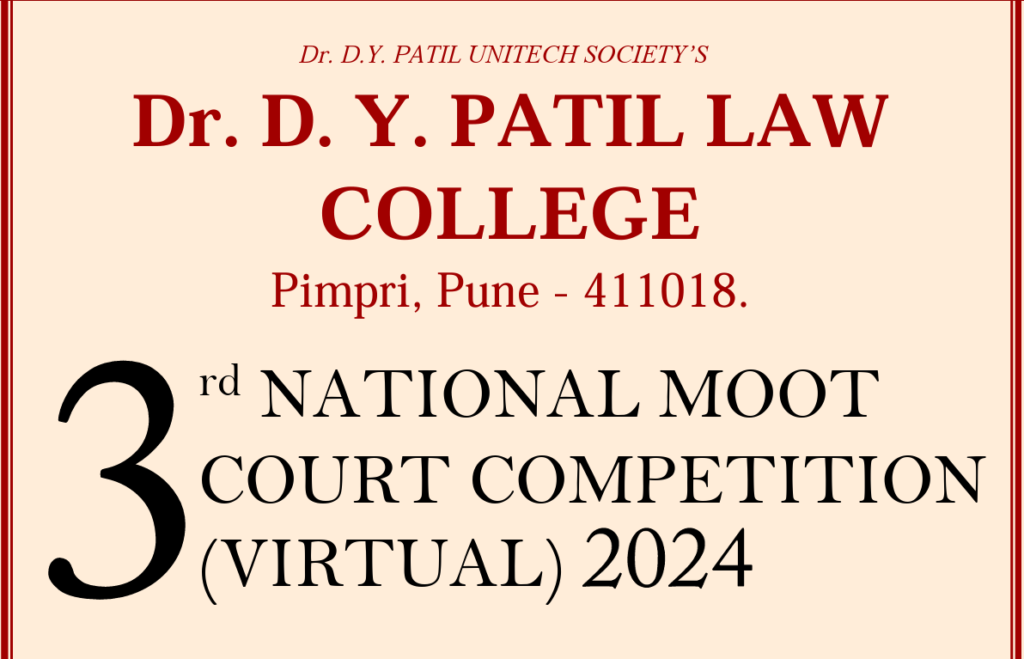Published On: 27th November, 2024
Authored by: Tanvi Awasthi
S.S KHANNA GIRL'S DEGREE COLLEGE
FACTS
A writ petition was filed under Article 32 by Joseph Shine challenging the constitutionality of Section 497 of the IPC, read with Section 198 of the CrPC, on the grounds of being in violation of Articles 14, 15, and 21 of the Indian Constitution. The petitioner argued that the provision for adultery was arbitrary and discriminatory based on gender. He further claimed that this law undermined the dignity of women. To address the matter, a constitutional bench of five judges was constituted.
BACKGROUND OF THE CASE
The concept of adultery in India stems from patriarchal notions and male chauvinism. Adultery is defined as a situation where a man engages in a sexual relationship with another man’s wife without the husband’s consent or knowledge.
Section 497 of the IPC granted the right to prosecute for adultery exclusively to husbands, making the wife a victim rather than an equal participant. In ancient history, adultery was regarded as a sinful act, irrespective of the gender of the perpetrator. However, Indian laws positioned women as victims, assuming they were seduced into adultery, which violated constitutional principles such as equality, non-discrimination, and dignity.
Several earlier cases had addressed similar petitions challenging the constitutionality of adultery laws:
-
Yusuf Abdul Aziz v. State of Bombay (1954): The court upheld Section 497, stating it was a special provision for women protected under Article 15(3).
-
Sowmithri Vishnu v. Union of India & Anr. (1985): The provision was challenged for not allowing a wife to prosecute her husband’s mistress. However, the court justified the provision by stating that it aimed to protect the family structure and moral values.
-
V. Revathi v. Union of India (1988): The court reaffirmed the constitutionality of Section 497, arguing that it acted as a deterrent to third parties attempting to disrupt marital sanctity.
LEGAL ISSUES OF THE CASE
Several critical legal questions arose in this case:
- Is Section 497 of the IPC unconstitutional?
- Does the law compromise a woman’s dignity by denying her sexual autonomy and self-determination?
- Should adultery laws be made gender-neutral, enabling wives to prosecute adulterous husbands?
- Is the provision arbitrary and discriminatory under Article 14?
In this context, the petitioner Joseph Shine challenged the validity of the provision.
CONTENTIONS
Petitioner’s Arguments
-
The petitioner’s counsel contended that Section 497 violated fundamental rights guaranteed by the Constitution, particularly Articles 14, 15, and 21.
-
The counsel emphasized that laws originating during British rule, such as Section 497, were outdated and irrelevant in contemporary society.
-
It was argued that the provision criminalized adultery based on gender classification, with no rational connection to its stated objective. The lack of consideration for the wife’s consent was cited as a violation of Article 14.
-
The counsel highlighted the notion of women as property under the law, pointing out that adultery was not considered an offense if the husband consented.
-
The petitioner argued that Section 497 discriminated against women by granting men the exclusive right to prosecute and denying women any reciprocal legal rights.
-
It was contended that the provision violated Article 21, as it undermined a woman’s dignity and sexual autonomy. The counsel asserted that consensual sexual activity falls under the Right to Privacy, and criminalizing it constituted an infringement.
-
The counsel further argued that the law objectified women by making them subordinate to their husbands’ will.
-
The petitioner claimed that both parties involved in consensual adultery should be treated equally under the law.
-
The counsel argued that individuals, regardless of marital status, have the right to engage in consensual sexual relationships without state interference.
Respondent’s Arguments
-
The respondent’s counsel defended the provision, arguing that adultery disrupts family relationships and requires deterrence to preserve the sanctity of marriage.
-
The counsel asserted that adultery harms not only the spouse but also the children and society as a whole. Such acts were described as morally outrageous, warranting criminalization.
-
It was argued that the discrimination in Section 497 was safeguarded under Article 15(3), which allows for special provisions for women.
-
The respondent contended that acts of adultery violate societal morality and therefore deserve punishment.
-
The counsel stated that Article 21 rights, such as privacy, are not absolute and can be reasonably restricted in matters of public interest.
-
It was argued that Section 497 acted as an affirmative measure to safeguard women.
-
The respondent requested the court to retain parts of the provision that upheld societal and marital morality.
THE COURT DEALS WITH THE ISSUES
Issue 1: Is Section 497 unconstitutional?
The Supreme Court cited precedents such as E.P. Royappa v. State of Tamil Nadu (1974) and Shayara Bano v. Union of India (2017) to establish that the classification made by Section 497 was arbitrary. The law treated husbands as the only aggrieved parties, excluding wives, thereby violating Article 14.
Issue 2: Does the law undermine a woman’s dignity?
Referring to Government of Andhra Pradesh v. P.B. Vijayakumar (1995) and Independent Thought v. Union of India (2017), the court highlighted that the law perpetuated gender stereotypes, contravening Article 15(1).
Issue 3: Does the law violate privacy?
The court relied on Justice K.S. Puttaswamy v. Union of India (2017) to affirm that granting husbands control over their wives’ sexual choices infringed on their dignity and violated Article 21.
JUDGEMENT OF THE HON’BLE SUPREME COURT
The Supreme Court declared Section 497 of the IPC unconstitutional, holding that it violated Articles 14, 15, and 21. It also invalidated Section 198(2) of the CrPC, which supported Section 497.
The court emphasized that the provision:
- Deprived women of autonomy, treating them as property of their husbands.
- Contravened the Right to Privacy by intruding into personal relationships.
- Perpetuated inequality in marriage, failing to uphold substantive equality.
While adultery was decriminalized, it remains a civil wrong and a valid ground for divorce. The court clarified that if adultery leads to a spouse’s suicide, it may still attract charges of abetment.
CONCLUSION
The Joseph Shine vs. Union of India (2019) judgment is a landmark decision that redefined personal liberty and gender equality. By striking down Section 497, the court dismantled a patriarchal law that undermined women’s dignity and autonomy. This judgment affirms that personal relationships should remain free from state interference.
Though adultery is no longer a criminal offense, it remains a matter of personal and moral accountability.
Last but not least, please remember, “adultery may take you to court, not to jail”.
REFERENCES –
1-https://privacylibrary.ccgnlud.org




